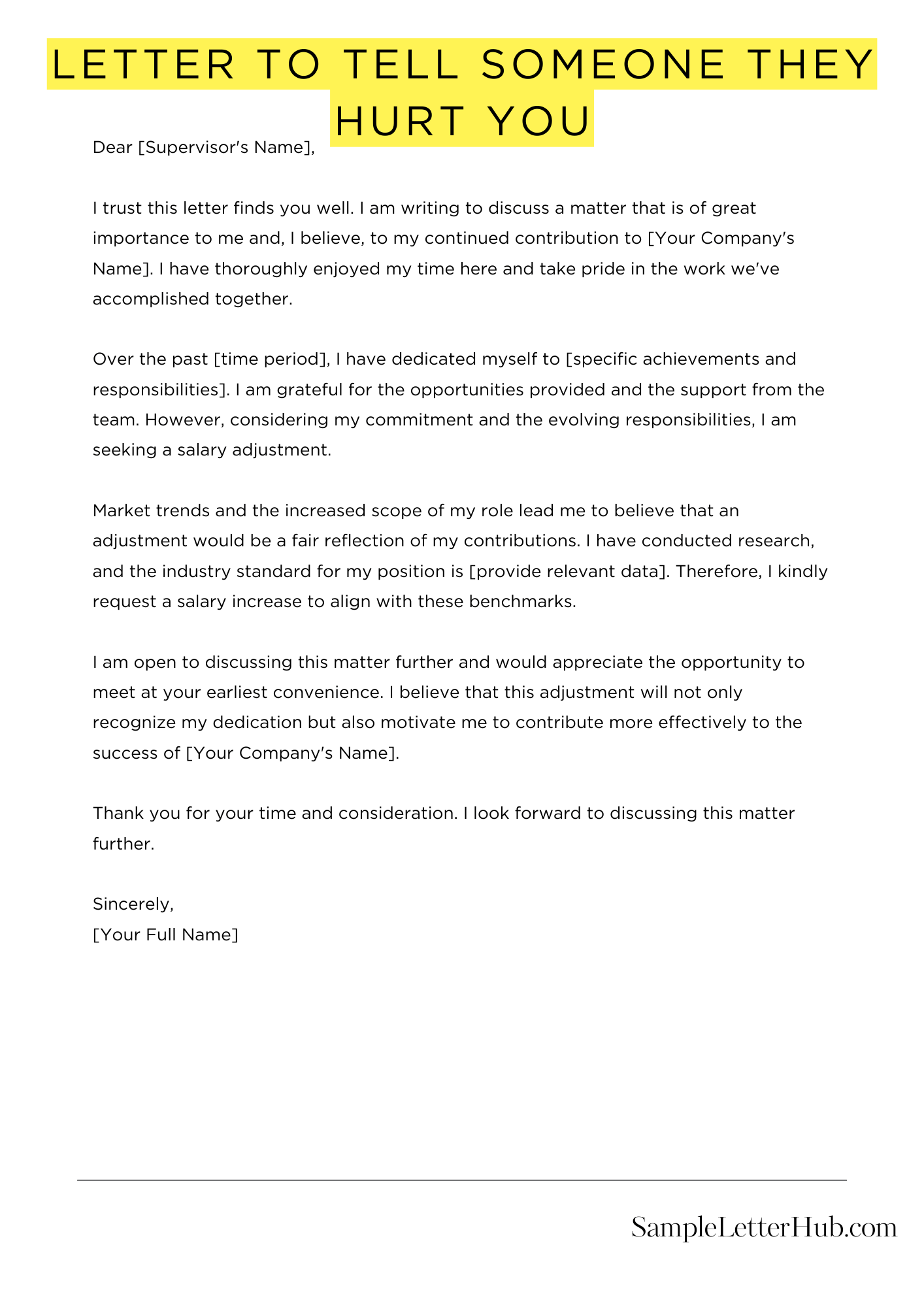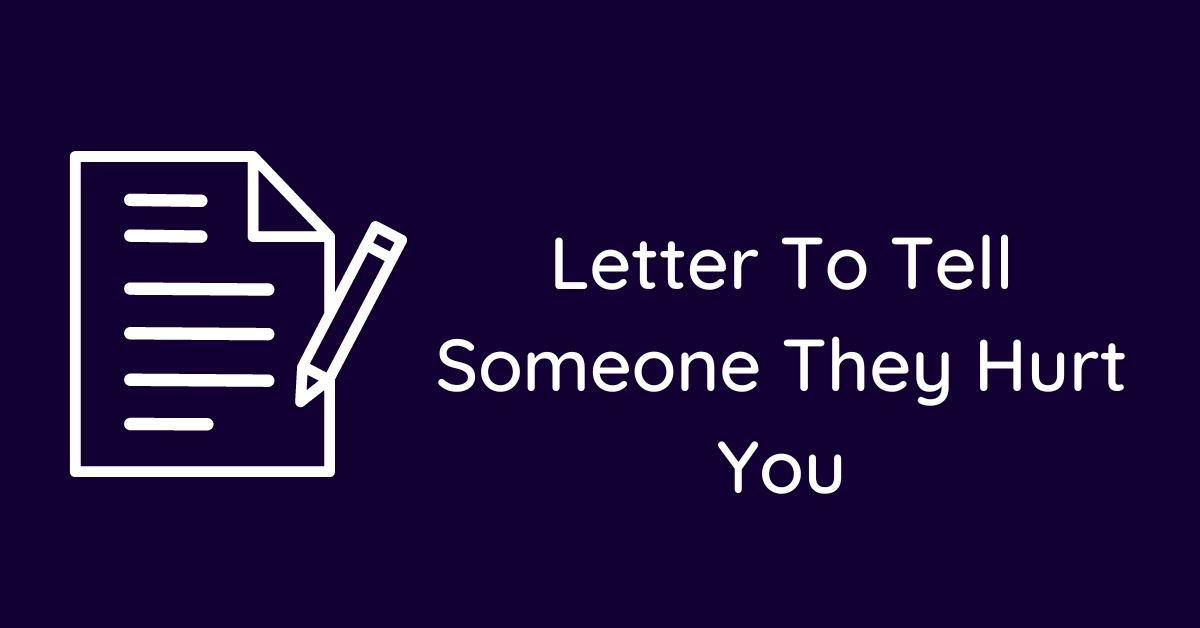A “letter to someone who hurt you” is a letter written to express your feelings and experiences after being hurt by someone. It can be a way to process your emotions, set boundaries, or seek closure.
In this article, we will provide you with several letter writing examples and samples that you can use as a starting point for your own letter. These examples will cover a range of situations, including being hurt by a friend, family member, or romantic partner.
Our goal is to make it easier for you to write a letter to someone who has hurt you, so that you can begin the healing process and move forward.
A Letter to Express Hurt
Dear [Recipient Name],
I am writing this letter to express my hurt over [briefly describe the situation that caused the hurt]. I have been feeling deeply affected by this since it happened.
Your words or actions made me feel [describe the specific emotions you felt, such as sadness, anger, or disappointment]. I felt like I was not being valued or respected.
I understand that we all make mistakes, and I am not trying to blame you. However, I need you to know how much your actions hurt me. I hope that you can understand my perspective and apologize for the pain you caused.
I am not trying to start a fight or make you feel bad. I simply want to communicate how I am feeling and hope that we can move forward from this.
I would appreciate it if you could take some time to reflect on your actions and consider how they may have affected me. I am open to talking about this further if you are willing.
Thank you for your time and consideration.
Sincerely,
[Your Name]

How to Write a Letter to Tell Someone They Hurt You
1. Start with a clear and concise statement of your purpose.
Let the person know that you are writing to them to express your hurt feelings. Be specific about what they did or said that hurt you.
2. Use “I” statements to express your feelings.
This will help you to avoid blaming the other person and will make it more likely that they will listen to what you have to say. For example, you could say, “I felt hurt when you said…” or “I was disappointed when you didn’t…”
3. Be specific about the behavior that hurt you.
Don’t just say that the person hurt you. Be specific about what they did or said that caused you pain. This will help the person to understand what they did wrong and will make it more likely that they will apologize.
4. Explain how the person’s behavior affected you.
Help the person to understand how their behavior made you feel. For example, you could say, “Your words made me feel like I was worthless” or “Your actions made me feel like I couldn’t trust you.”
5. Be open to forgiveness.
If you are willing to forgive the person, let them know. However, don’t forgive them if you are not ready. Forgiveness is a process, and it takes time.
6. End the letter with a positive note.
Let the person know that you still care about them, even though they hurt you. You could say, “I hope that we can work through this together” or “I still believe in you.”
7. Proofread your letter before you send it.
Make sure that there are no errors in grammar or spelling. You should also make sure that the tone of the letter is appropriate. You want to be assertive, but you don’t want to be aggressive.
FAQs about Letter To Tell Someone They Hurt You
How do I start a letter to tell someone they hurt me?
Begin by expressing your appreciation for the relationship and acknowledging the person’s positive qualities. This sets a respectful and empathetic tone.
What should I include in the body of the letter?
Clearly state the specific actions or words that caused you pain, providing examples and context. Explain how their behavior affected you emotionally.
How do I express my feelings without being accusatory?
Use “I” statements to convey your feelings. For example, instead of saying “You made me feel bad,” say “I felt hurt when you said…” This takes ownership of your emotions.
What should I avoid saying?
Avoid using generalizations, blaming language, or personal attacks. Focus on the specific behaviors that caused you harm, rather than attacking the person’s character.
How do I end the letter?
End the letter on a hopeful note, expressing your desire for resolution or reconciliation. Let the person know that you value the relationship and hope to move forward together.

